Why AI Evolution in the Travel Industry is Revolutionising Tourism
The travel industry is experiencing a profound transformation driven by artificial intelligence. From personalised recommendations to automated customer service, AI evolution in travel industry is reshaping how businesses operate and how travellers experience their journeys. This technological revolution is not just enhancing existing processes, it's fundamentally reimagining what's possible in tourism, creating unprecedented opportunities for innovation and growth.
AI IN TRAVEL
Powerful Digital Marketing
7/19/202510 min read


Why AI Evolution in Travel Industry Is Revolutionising Tourism
The travel industry is experiencing a profound transformation driven by artificial intelligence. From personalised recommendations to automated customer service, AI evolution in travel industry is reshaping how businesses operate and how travellers experience their journeys. This technological revolution is not just enhancing existing processes, it's fundamentally reimagining what's possible in tourism, creating unprecedented opportunities for innovation and growth.
The Rapid Growth of AI in Travel
The adoption of AI technologies in the travel sector has accelerated dramatically in recent years. According to recent data, approximately 60% of Asia-Pacific travellers now use AI tools to research and book their travel destinations. The primary objectives for these travellers include reducing booking time, securing optimal deals, accessing reliable information, and overcoming language barriers.
This surge in AI adoption is transforming every aspect of the travel experience, from initial planning to post-trip engagement. Major travel companies like Booking.com and Expedia have integrated AI-powered platforms that offer personalised options aligned with user preferences, while airlines like United Airlines leverage AI models to provide timely information about flight disruptions.
Common AI Applications in Travel
Intelligent chatbots for customer service
Dynamic pricing algorithms
Personalised recommendation engines
Automated booking systems
Predictive maintenance for transportation
Voice-based travel assistants
The democratisation of AI technology has made these tools accessible to businesses of all sizes within the travel ecosystem. What was once exclusive to major corporations with substantial R&D budgets is now available to smaller operators, creating a more level playing field and driving industry-wide innovation.
5 Key Benefits of AI Evolution for the Travel Industry
The integration of AI into travel operations delivers multiple advantages that enhance both business performance and customer satisfaction. Here are the five most significant benefits:
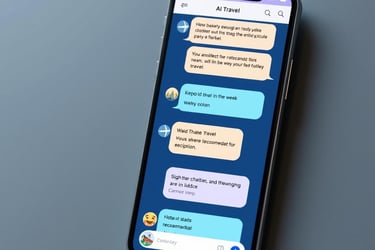



AI enables hyper-personalisation by analysing customer data to deliver tailored recommendations and services. Travel companies can now create "segments of one," offering uniquely customised experiences based on individual preferences, past behaviour, and contextual factors. This level of personalisation extends throughout the entire customer journey, from initial research to post-trip engagement.
For example, hotel chains use AI to remember guest preferences across properties, while airlines leverage AI to customise in-flight entertainment and meal options based on passenger history.
1. Enhanced Experience
2. Operational Efficiency
3. Predictive Analytics
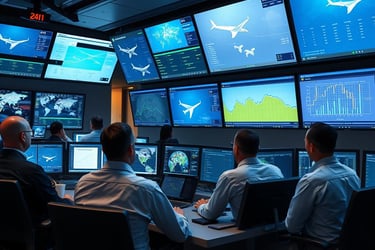

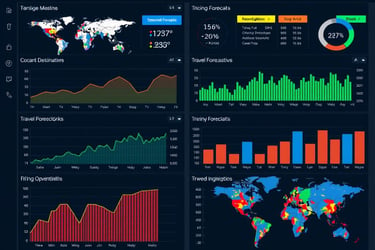

AI significantly improves operational efficiency by automating routine tasks and optimising resource allocation. In the airline industry, AI systems manage crew scheduling, aircraft maintenance, and gate assignments, reducing costs and minimising delays. Hotels use AI to optimise room inventory, staffing levels, and energy consumption based on occupancy predictions.
These efficiency gains translate directly to cost savings, with McKinsey Digital estimating that companies holistically addressing digital and analytics opportunities can see a 15-25% earnings improvement.
AI-powered predictive analytics enable travel companies to anticipate demand patterns, optimise pricing strategies, and forecast operational needs with unprecedented accuracy. By analysing historical data, market trends, and external factors like weather and events, AI helps businesses make data-driven decisions that maximise revenue and customer satisfaction.
For instance, hotels can predict occupancy rates months in advance and adjust pricing accordingly, while tour operators can anticipate popular destinations and prepare appropriate resources.
4. Risk Management and Crisis Response
5. AI Driven
Revenue Optimisation
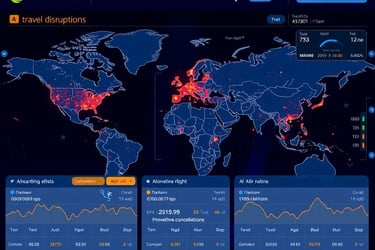

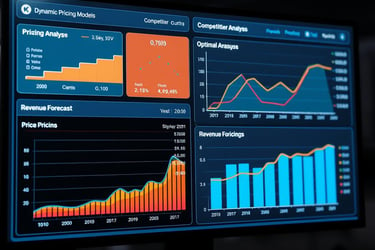

AI enhances risk management by monitoring potential disruptions and enabling proactive responses to crises. During the COVID-19 pandemic, AI systems helped travel companies manage cancellations, communicate with affected customers, and implement new safety protocols efficiently.
Today, airlines use AI to predict potential disruptions due to weather or maintenance issues and proactively rebook affected passengers, turning potential service failures into opportunities to demonstrate customer care.
AI-driven revenue management systems optimise pricing and inventory allocation across all travel segments. By analyzing market demand, competitor pricing, and customer willingness to pay, these systems maximize revenue without alienating price-sensitive customers.
According to industry data, hotels implementing AI-based revenue management systems typically see a 5-10% increase in revenue per available room (RevPAR), while airlines can improve yield by 3-5% through AI-optimised pricing strategies.
Ready to implement AI in your travel business?
Discover how AI can transform your operations and customer experience with our expert consultation.
Real-World Examples of AI in Travel
Across the travel ecosystem, companies are implementing innovative AI solutions that deliver tangible benefits. These real-world applications demonstrate the practical impact of AI evolution in travel industry:
Airlines: Predictive Maintenance and Service Recovery
Major airlines have implemented AI-powered predictive maintenance systems that analyse sensor data from aircraft components to identify potential failures before they occur. This proactive approach reduces unscheduled maintenance by up to 30%, minimising delays and cancellations.
United Airlines uses AI models to provide timely and accurate information about flight disruptions, improving customer service during delays. The system automatically generates personalised communications and rebooking options based on individual passenger preferences and status.
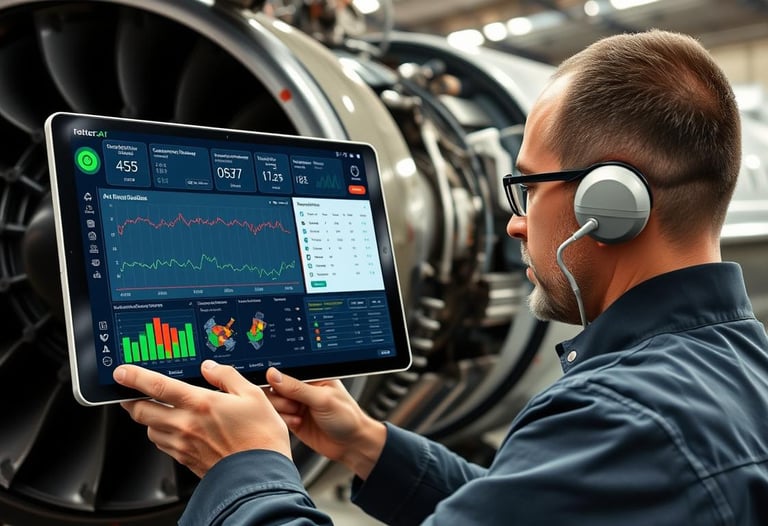

Case Study: Delta Air Lines' AI-powered operations centre has reduced the impact of weather disruptions by 40%, saving millions in operational costs while improving customer satisfaction during irregular operations.
Hotels: AI Concierges and Personalised Experiences
Leading hotel chains have deployed AI concierges that provide 24/7 guest assistance through messaging platforms and voice interfaces. These systems handle routine requests like room service orders, housekeeping requests, and local recommendations, freeing human staff to focus on more complex guest interactions.
Marriott International's "ChatBotlr" handles guest requests via text message, while Hilton's "Connie" robot concierge provides information about hotel amenities and local attractions. These AI assistants learn from each interaction, continuously improving their ability to anticipate guest needs.
Beyond customer service, hotels use AI to personalise the guest experience based on preferences and behaviour. Room temperature, lighting, entertainment options, and even artwork can be customised to match individual guest profiles, creating a truly personalised stay.
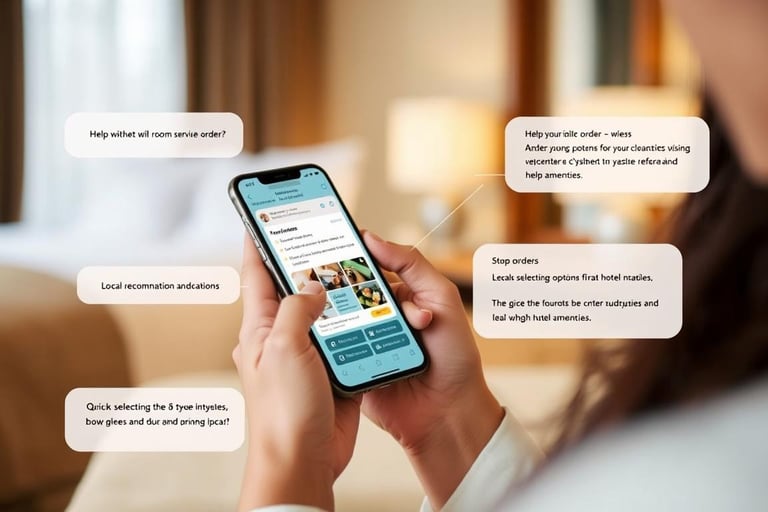



Online Travel Agencies: Hyper-Personalisation
Online travel agencies (OTAs) like Booking.com and Expedia have implemented sophisticated AI systems that analyse user behaviour, search patterns, and historical data to deliver highly personalised recommendations. These platforms can predict which properties a user is most likely to book based on their preferences and behaviour.
Booking.com's AI system analyses over 150 billion potential combinations of factors to create personalised search results and recommendations for each user. This level of personalisation has increased conversion rates by more than 25% on some platforms.
Expedia's AI-powered app provides personalised trip planning assistance, helping users discover destinations, activities, and accommodations that match their preferences and budget. The system continuously learns from user interactions, refining its recommendations over time.
Addressing the Challenges of AI Implementation
Despite its transformative potential, implementing AI in travel operations presents several challenges that businesses must address:
Opportunities
Enhanced customer experiences through personalisation
Significant operational efficiencies and cost savings
Improved decision-making with data-driven insights
New revenue streams and business models
Competitive advantage for early adopters
Challenges
Data privacy concerns and regulatory compliance
Implementation costs and technical complexity
Integration with legacy systems
Workforce adaptation and potential resistance
Maintaining the human touch in customer service
Data Privacy and Security Concerns
The collection and analysis of traveler data raise important privacy considerations. Travel companies must implement robust data protection measures and ensure compliance with regulations like GDPR and CCPA. Transparency about data collection and usage is essential for maintaining customer trust.
Best Practice: Implement a comprehensive data governance framework that includes clear policies for data collection, storage, processing, and deletion. Provide customers with transparent information about how their data is used and give them control over their personal information.
Implementation Costs and ROI Considerations
Developing and implementing AI solutions requires significant investment in technology, talent, and organizational change. Travel companies must carefully evaluate the potential return on investment and prioritize use cases with the highest business impact.
While larger companies may have more resources to develop in-house capabilities, a robust ecosystem of service providers makes AI technologies accessible to companies of all sizes. Cloud-based AI services and pre-built solutions offer cost-effective options for smaller travel businesses.


Balancing Automation and Human Touch
While AI can automate many aspects of the travel experience, the human element remains crucial, especially in high-touch service interactions. The most successful implementations of AI in travel complement rather than replace human service providers, allowing staff to focus on creating meaningful connections with customers.
For example, AI can handle routine inquiries and transactions, freeing hotel staff to provide personalized attention to guests with complex needs or special occasions. This hybrid approach combines the efficiency of automation with the empathy and creativity of human service.
Future Trends in AI Evolution in Travel Industry
The evolution of AI in travel is just beginning, with several emerging trends poised to further transform the industry:
Hyper-Personalisation at Scale
Voice and Multimodal Interfaces
Sustainable Travel Optimisation
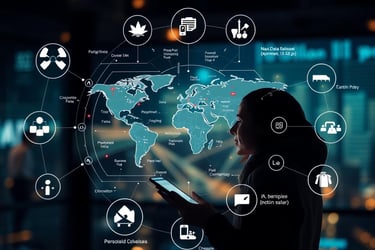



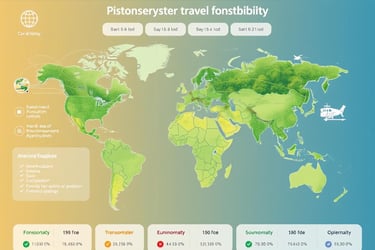

Future AI systems will enable true "segments of one" marketing, with every aspect of the travel experience customised to individual preferences. This hyper-personalisation will extend beyond recommendations to include customised pricing, communication channels, service levels, and even product features.
Imagine a hotel room that automatically adjusts temperature, lighting, and entertainment options based on your preferences, or an airline that proactively offers your preferred seat, meal, and entertainment without you having to request them.
Voice-based AI assistants will become increasingly sophisticated, enabling natural conversations about travel planning and booking. These multimodal interfaces will combine voice, text, and visual elements to create intuitive and engaging user experiences.
Travellers will be able to plan complex itineraries through conversational interactions, with AI assistants that understand context, remember preferences, and provide personalised recommendations across multiple channels and devices.
As sustainability becomes increasingly important to travellers and businesses, AI will play a crucial role in optimising travel for environmental impact. AI systems will calculate the carbon footprint of different travel options and recommend more sustainable alternatives.
Airlines will use AI to optimise flight paths and fuel consumption, while hotels will leverage AI to reduce energy and water usage without compromising guest comfort. These sustainability initiatives will become key differentiators in the competitive travel marketplace.
Autonomous Travel Services
The development of autonomous vehicles and services will revolutionise transportation within the travel industry. Self-driving taxis, shuttles, and even autonomous aircraft will transform how travellers move between destinations, offering new levels of convenience and efficiency.
Hotels are already experimenting with autonomous delivery robots for room service and amenities, while airports are implementing autonomous vehicles for baggage handling and passenger transportation. These autonomous systems will become increasingly common, reducing labor costs and improving service consistency.
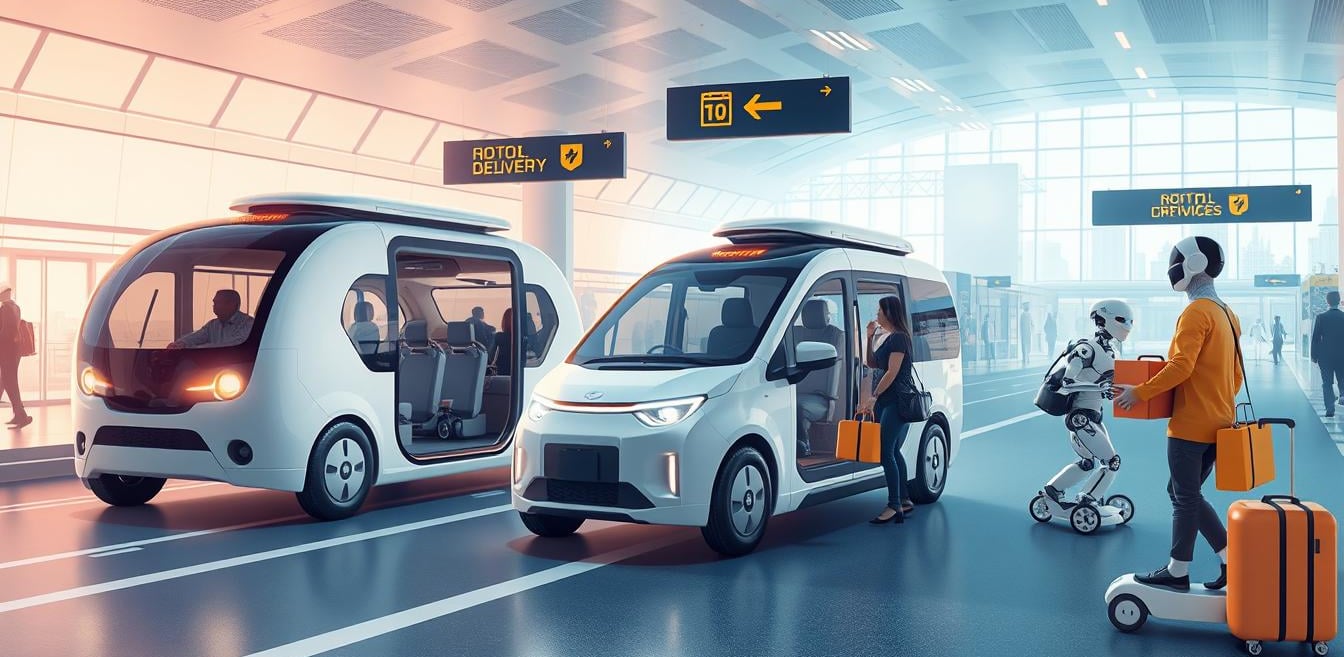

Predictive Experience Management
Future AI systems will not only react to customer needs but anticipate them before they arise. Predictive experience management will identify potential service failures and address them proactively, creating seamless travel experiences even in challenging situations.
For example, if an AI system detects that a flight is likely to be delayed due to weather conditions, it can automatically notify affected passengers, suggest alternative routes, and even rebook those with tight connections, all before the delay is officially announced.
Industry Challenge: As AI becomes more prevalent in travel, companies must ensure they maintain appropriate human oversight and intervention capabilities, particularly for complex or sensitive customer situations that require empathy and creative problem-solving.
Conclusion: Embracing the AI Revolution in Travel
The AI evolution in travel industry represents a pivotal moment of transformation and opportunity. Companies that successfully integrate AI into their operations and customer experiences will gain significant competitive advantages in efficiency, personalisation, and service quality.
However, the most successful implementations will be those that use AI to enhance rather than replace the human elements that make travel special. The future of travel lies not in choosing between technology and human connection, but in finding the optimal balance between them.
For travel businesses looking to thrive in this new era, the time to act is now. Start by identifying specific use cases where AI can deliver immediate value, build the necessary data infrastructure and capabilities, and develop a long-term strategy for AI integration across your organisation.
Ready to Transform Your Travel Business with AI?
Download our comprehensive guide to implementing AI in travel operations and start your journey toward enhanced customer experiences and operational excellence.


Frequently Asked Questions About AI in Travel
How can small travel businesses implement AI without large budgets?
Small travel businesses can leverage cloud-based AI services and pre-built solutions that require minimal upfront investment. Start with focused applications like chatbots for customer service or recommendation engines for your website. Many AI service providers offer scalable pricing models based on usage, making advanced capabilities accessible to businesses of all sizes.
What data do travel companies need to effectively implement AI?
Effective AI implementation requires both internal and external data sources. Internal data includes customer profiles, booking history, service interactions, and operational metrics. External data might include market trends, competitor pricing, weather forecasts, and event calendars. The key is integrating these diverse data sources into a unified view that AI systems can analyse to generate meaningful insights.
How does AI impact jobs in the travel industry?
AI is changing the nature of work in travel rather than simply eliminating jobs. While some routine tasks are being automated, new roles are emerging in areas like data analysis, AI management, and enhanced customer service. The most successful organisations are retraining employees to work alongside AI systems, focusing human talent on tasks that require creativity, empathy, and complex problem-solving.
What are the biggest challenges in implementing AI in travel operations?
The biggest challenges include integrating AI with legacy systems, ensuring data quality and accessibility, managing privacy and regulatory compliance, and driving organisational change. Many travel companies operate complex technology ecosystems built over decades, making seamless integration difficult. Additionally, building the necessary data infrastructure and developing AI literacy across the organisation requires significant investment in both technology and people.
Want to learn more? Read about The Rise of AI and How the Travel Industry Can Benefit on our website.
WORKING HOURS
Monday - Friday 9:00 AM - 6:00 PM
Saturday - Sunday 8:00 AM - 12:00 PM
Want to Call? Ask our Powerful Bot for the Number
ADDRESS
7A High Street
Barnet
Greater London
EN5 5UE
